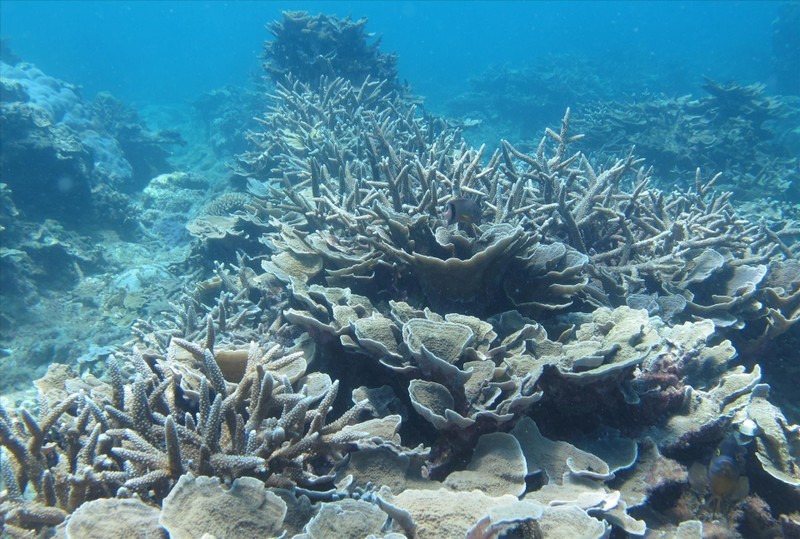The United Nations General Assembly has just adopted a resolution on the agreement under the United Nations Convention on the Law of the Sea on the Conservation and Sustainable Use of Marine Biological Diversity of Areas beyond National Jurisdiction (BBNJ), setting the date for the signing of the agreement in September. In the context that the “health” of many oceans is seriously threatened, the BBNJ is expected to revitalise the Earth's oceans.

Illustrative image (Photo: vietnam.vnanet.vn)
The resolution of the United Nations General Assembly welcomed the adoption of the BBNJ agreement in June, officially ending the nearly two decades of arduous negotiation.
The United Nations General Assembly called on countries to quickly consider the signing and ratifying of the agreement and decided to include provisions of the BBNJ to the annual agenda of the United Nations General Assembly. The agreement will be opened for signature within two years from September 20, 2023, and will enter into force 120 days after 60 countries have acceded or ratified it.
Considered a success of diplomatic efforts and multilateralism, the BBNJ agreement was born with the goal of creating a basis and motivation for conservation activities and sustainable use of the seas beyond national jurisdiction. International waters cover nearly 50% of the Earth’s surface and more than 60% of the world’s oceans. These areas generate a large amount of oxygen that people breathe every day, while helping to limit climate change by absorbing CO2 emissions.
In addition, the sea is also home to areas of biodiversity. In a study published in The Lancet, a team of scientists highlighted that the oceans, from coastal waters to high seas and deep seabeds, are indispensable for human health and life.
However, because international waters are not under the jurisdiction of any country, no agency or organisation has taken responsibility for or been tasked with managing this important but vulnerable “treasure”. The protection of international waters has also been neglected for a long time. The worrying situation creates an urgent need for a legal framework to expand the scope of environmental protection to international waters.
The birth of the BBNJ agreement is considered an important step in the journey to protect the ocean. Emphasising that the passing of the BBNJ is a miracle, President of the 77th United Nations General Assembly Csaba Korosi said that countries have jointly laid the foundation for better management and protection of the oceans for future generations.
The agreement not only establishes a framework and method for equitable sharing of benefits from the high seas, but also has provisions on measures regarding zoning marine conservation as well as the assessment and prevention of negative impacts of exploitation and research activities on marine biodiversity.
The agreement also establishes and operates agencies and institutions for the implementation of documents, dispute settlement, financial mechanism, and others. The document is also considered a stride in the global effort to protect 30% the world’s land and sea area by 2030, ratified by countries at the 15th Conference of the Parties to the United Nations Convention on Biological Diversity (COP15) in late 2022.
Experts said that the early signing, ratification, and implementation of the BBNJ agreement by countries is a matter of vital importance to the oceans. United Nations Secretary-General Antonio Guterres emphasised that the oceans are increasingly facing serious threats such as global warming, pollution, over-exploitation, and marine ecosystem change.
More than 17 million tonnes of plastic were dumped into the oceans in 2021. This number could double or triple by 2040. In addition, ocean acidification and rising temperatures are threatening marine species and ecosystems. Scientists say that the ocean surface temperature has continuously reached record highs.
According to the US National Oceanic and Atmospheric Administration, after the Mediterranean Sea reported a new record high in temperature, the North Atlantic region also reached an unprecedented temperature, several weeks earlier than the annual peak.
The imminent dangers to the ocean are a warning and an urge for countries and international organisations to act quickly. Experts affirmed that the early signing, ratification, and implementation of the BBNJ agreement will help the world build another shield to jointly protect the sea - a precious common asset of mankind.
Tien Dung